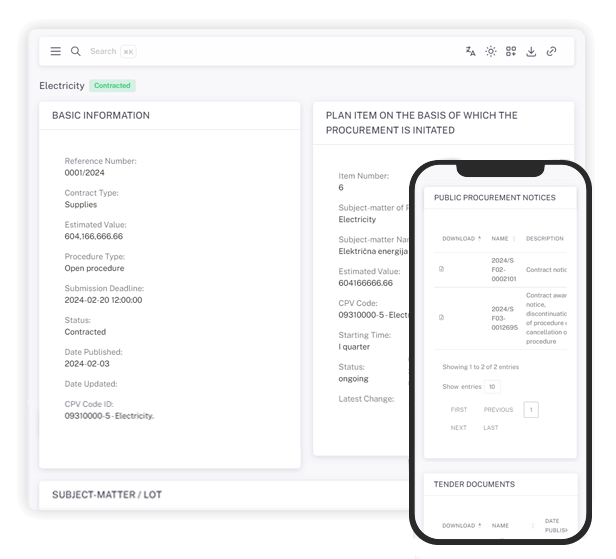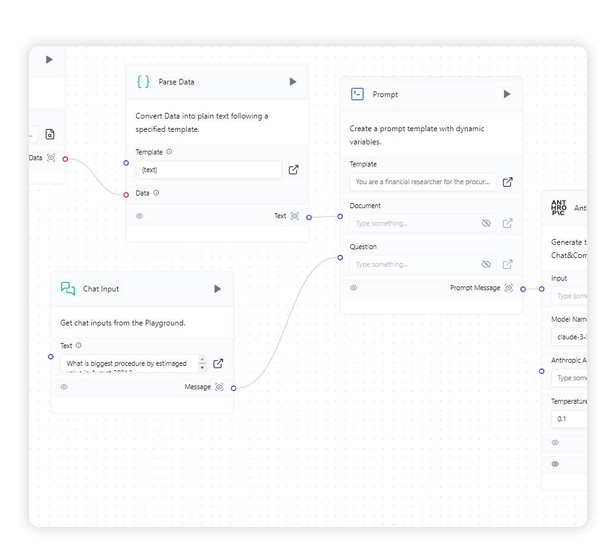Utilizing Open Data
as a tool for greater Competition Participation
and Reforms in the Public Procurements
in the WB6 countries
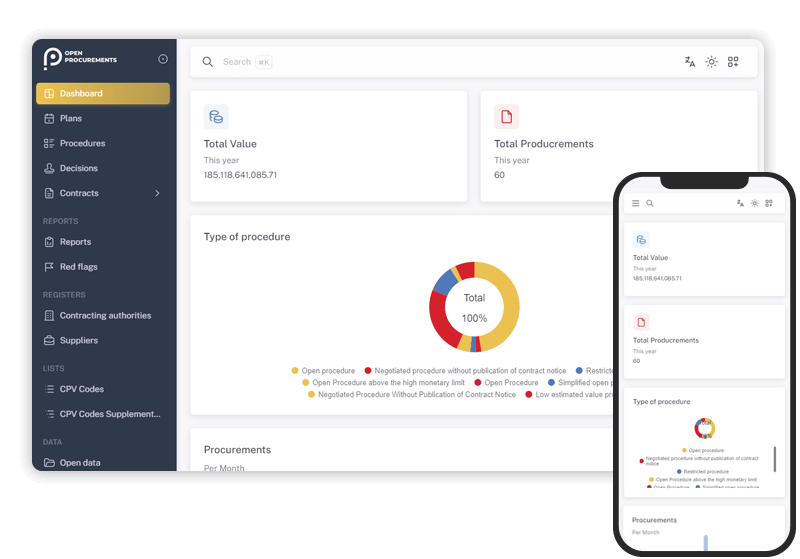
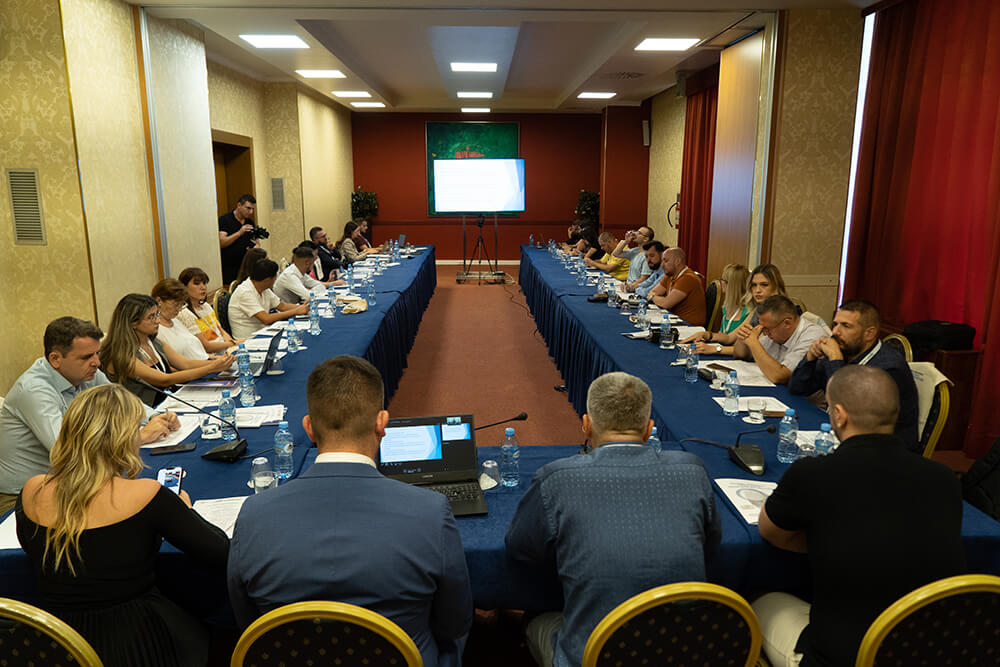
The project
The project will contribute to the improvement of participation, integrity, openness, and accessibility of the public procurement systems through the implementation of national comparative analyses for the use of open data in new potential tools that will increase mutual market participation and competitiveness at the level of the countries of the Western Balkans.
By conducting national comparative analyses of the public procurement systems in Serbia, Bosnia and Herzegovina, Montenegro, Kosovo, Albania and North Macedonia, from the aspect of accessibility and usability of open data, we will primarily prepare the conditions for the development of a regional tool whose purpose will be mutual market opening, improvement of market participation and increasing competitiveness, which will additionally affect the transparency and prevention of current corrupt mechanisms, cartel access and national monopolies.
By creating and regionally promoting the “Policy Brief” after the national comparative analyses, we will present the basic guidelines that will enable the countries of the Western Balkans to see mutual compatibilities that can accelerate the reforms of the opening, accessibility, and competitiveness of national markets.
Objective
Balkan Tender Watch monitoring observed in five consecutive years (2017-2021) the total annual value of public procurement in all countries. There is a substantial difference among annual public procurement values in Albania, Bosnia and Herzegovina and Serbia on the one hand, and public procurement values in North Macedonia, Montenegro, and Kosovo, which is certainly the consequence of size of states and the volume of their respective public sectors. Average value, for the period of five years, that observed countries spent through public procurement were as follows:
- Albania: 1.215.989.770 EUR;
- Bosnia and Herzegovina: 1.401.720.126 EUR;
- North Macedonia: 895.035.336 EUR;
- Montenegro: 469.013.124 EUR;
- Kosovo: 560.424.113 EUR;
- Serbia: 3.587.933.170 EUR.
As we can see, on the average Serbia is spending through the public procurement around 80% of amount that all other countries are spending combined.

Contracting authorities almost always procure only the cheapest goods, services or works, i.e., in 94% the lowest offered price is the deciding criterion which further distances us from the effective implementation of the principle “best value for money”. In addition, our market is practically “closed” for foreign bidders – 1% of all contracts were awarded to EU bidders. As much as the EU market is bigger than the Serbian, the amount of funds spent in Serbia through public procurement in normal circumstances would attract a much larger number of foreign bidders.
Although untapped, there is a huge potential for improving accessibility, cooperation, transparency, through market opening and regional participation in tenders through the thorough analysis, alignment and use of open data.
The overall goal of the project
Improvement
Improvement of participation, openness and competitiveness in the markets of the Western Balkan countries through the preparation of conditions for the development of a regional tool whose purpose will be the mutual opening of markets, based on the conducted national comparative analyses in public procurement systems from the aspect of accessibility and openness of data
Support
Networking
Networking of regional actors and improvement of their role, interest, and integrity in the process of improving the openness and accessibility of the public procurement system in the Western Balkans region
Demo Application
Advanced search
powered by Algolia
Advanced search powered by Algolia delivers fast, real-time results with customizable filters and typo tolerance, enhancing user experience by offering relevant, categorized results in milliseconds.
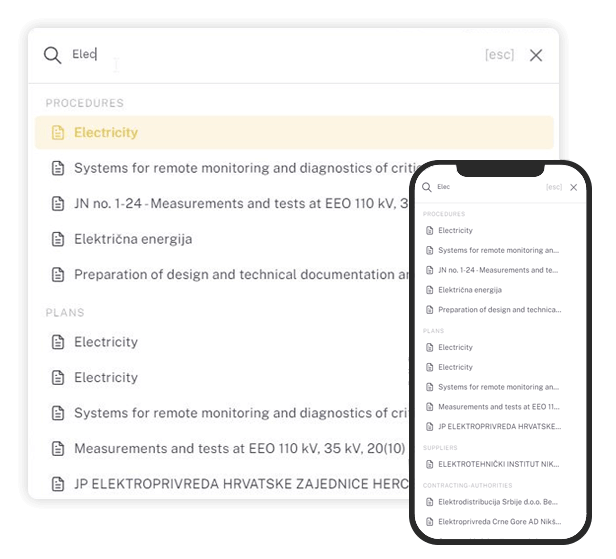
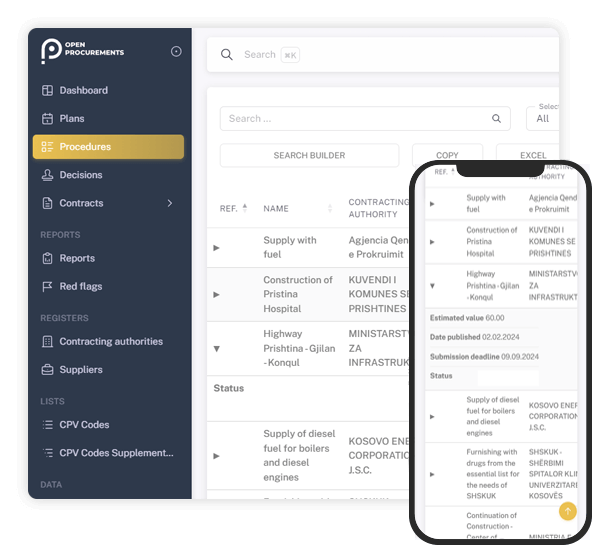
Expandable mobile
optimized tables
Fixed columns for
enhanced readability
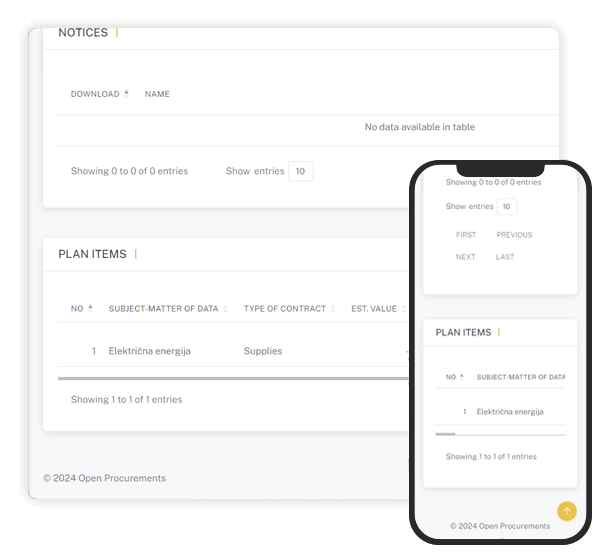
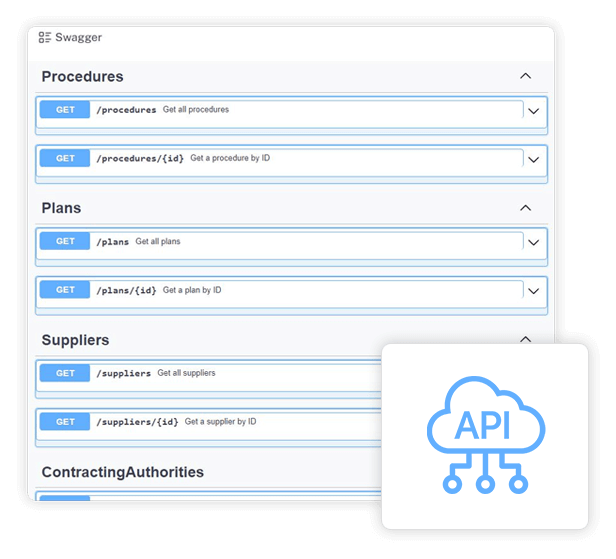
Seamless API access
and documentation
API access allows seamless interaction with open data, enabling researches and developers to integrate and automate tasks efficiently. Clear documentation ensures smooth implementation and reduces development time.
Multilingual support for broader audience
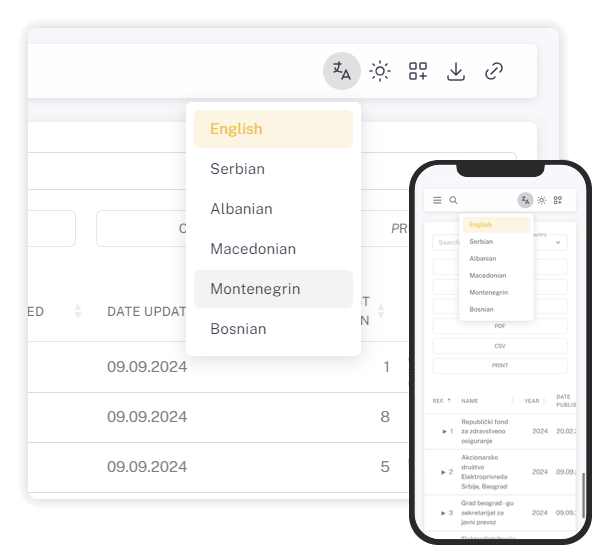
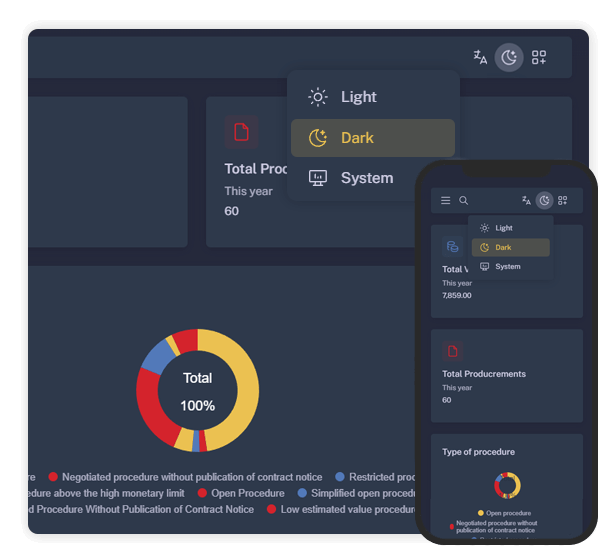
Dark theme for
for sleek user experience
Chatbot with function calls
for dynamic Interaction
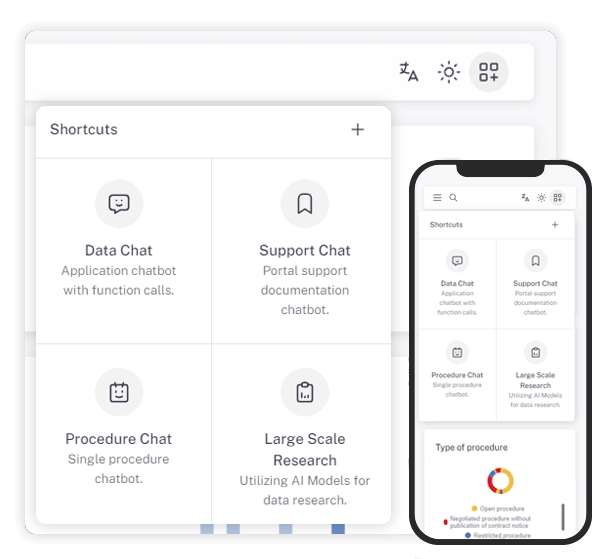
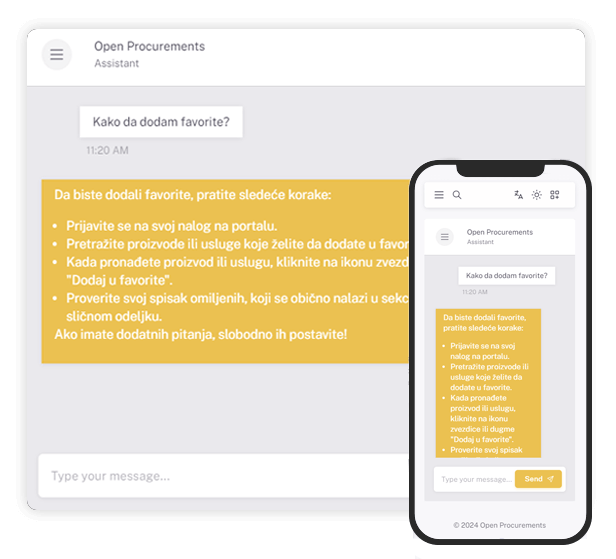
Support AI Agent for
comprehensive assistance
Procurement chatbot for
procedure-specific assistance
